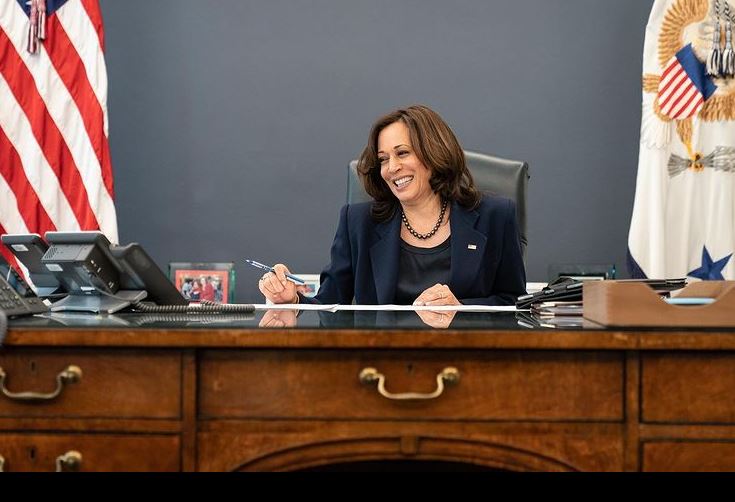The significance of VP Kamala Harris’s biracial identity has not only been a hot topic in the Black community but the Indian one as well.
#MyVPLooksLikeMe #MadamVicePresident #RepresentationMatters
These are some of the trending hashtags since Vice President Kamala Harris’s inauguration as our nation’s first Black and South Asian female VP. Many young POC are inspired to see someone that looks like them as their VP. So, as we reach the two week anniversary of the inauguration, RoyalTee Magazine reached out to some young Indian women to see if they feel like their VP “looks like them.”
Not Desi Enough
To a certain extent, she represents Indian American women. Her name, Kamala Devi Harris, and her brown skin carry her South Asian background. However, the woman that I spoke to felt that she wasn’t really Indian. She doesn’t represent nor portray the ‘Desi’ culture.
Jamila stated, “I don’t know if I feel like she represents me as an Indian, because while she does obviously hold on to her culture, she’s not immersed in it the way I feel like we are; so, I don’t know if I view her as an Indian leader as much as I do a WOC leader. There’s a difference for me.”

A Representation of Both
I disagree with this notion of Kamala Harris not being ‘Desi’ enough. Harris is biracial and she gets to decide her narrative and how much she chooses to represent both her identities. Applaud her for being the first person with a South Asian identity to reach the position of VP.
In an interview with Aziz Haniffa, Harris said, “I am proud to be who I am, I am proud of the influences that my family have had on my life, that my community had on my life, and similarly the influence of my mentors and colleagues and friends. One is not to the exclusion of the other – I believe that point is at the heart of this matter.”
Her acceptance as Black and Indian, not Black or Indian, is at the heart of this matter. Harris has never denied her identity. She has named her mother, Shyamala Gopalan, as one of the biggest inspirations in her life. Shyamala’s struggle in navigating through American culture is one that many first-generation Indian Americans can relate to. Additionally, Harris has spoken about how proud her mother was about her Indian culture and how she passed that culture along to both Kamala and her sister, Maya.
Influence Matters
In a video with Mindy Kaling, Harris makes dosas, sourdough crepes, and connects with Kaling about various similarities they share from their experiences growing up in an Indian household. One such similarity is that all of the spices would be in Taster’s Coffee jars. Also, Harris’s onion-cutting skills would make all the aunties proud.
Importantly, Shyamala was raising two half Black/half Indian girls. Just as she taught them about their Indian culture, she taught them about Black culture. In her biography, Harris writes, “My mother understood very well she was raising two Black daughters. She knew that her adopted homeland would see Maya and me as Black girls, and she was determined to make sure we would grow into confident Black women.”
For those who need to hear it, it's perfectly fine to celebrate Kamala Harris being South Asian, a daughter of an immigrant Indian mom, who is proud of her culture. It's a big deal for many of us, especially with Desi daughters, that she is the VP of this country. Enjoy it.
— Wajahat Ali (@WajahatAli) January 20, 2021
My VICE PRESIDENT is a WOMAN! A BLACK ASIAN WOMAN FROM THE BAY!!?????@SenKamalaHarris
— QTip (@QtipTheAbstract) January 20, 2021
crying tears of coconut milk as i watch kamala harris: mother of all masalas, dosa deewani, an enlightened idli in this monsoon of a nation, being sworn into office along dearest chacha joe today. this is what it means to be desi in this wonderful nation ?? we made it yall ?
— LIL TAS??EEH? (@yungburqa) January 20, 2021
https://www.instagram.com/p/CKRnaEkLh8d/
Representation Matters
Overall, South Asians shouldn’t be disappointed at the perceived lack of South Asian representation by Harris. She is merging her two identities to form her own self.
Here are a few shout outs from some of my fellow Indians celebrating VP Harris’s win as a win for all of us in the South Asian community. Representation does matter, and we need more of it.

